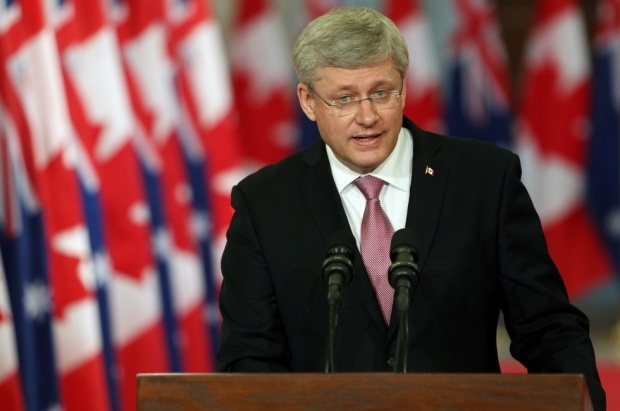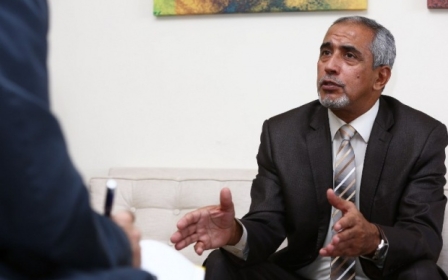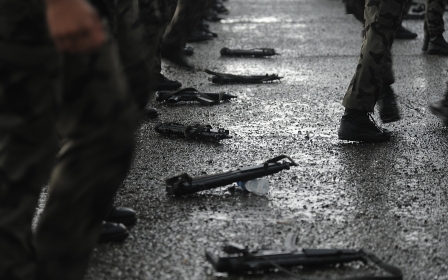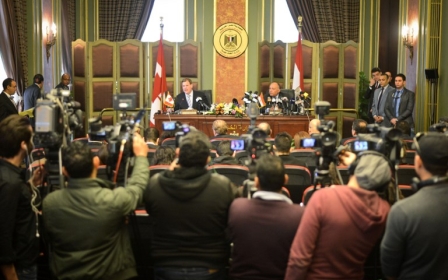For Islamophobia to stop, it needs to start from the top

“Over the last few years, a great evil has been descending upon our world, an evil which has been growing more and more powerful: violent jihadism.”
Listening to Canada’s Prime Minister Stephen Harper, it often sounds as if terrorists are running amok across the country.
“They want to harm us because they hate our society... Through their deeds, these jihadists have declared war on Canada and with their words, they urge others to join their campaign of terror against Canadians.”
Canadians are actually, statistically, more likely to be struck by lightning than to be a victim in a terrorist attack, yet Harper continues to fearmonger, reminding Canadians ad nauseum that they are at serious risk.
On 30 January Harper introduced a new anti-terrorism bill, Bill C-51, which would give spy agencies sweeping powers to arrest suspects, with no independent oversight. We have no proof that this bill will make us any safer; it will only further curb our civil rights.
The bill comes after two Quebecers with a history of depression and drug addiction killed two Canadian soldiers last fall. We have no proof that the murderers were connected to the “Islamic State” (IS) in any way, but since the two recently converted to Islam, politicians and the media repeatedly alarmed the public that it was an IS-inspired “terrorist attack”. The fact that they were mentally unstable individuals wasn’t as widely reported.
Whereas this month, when the RCMP (Canada’s national police force) arrested a couple who were planning to commit a mass shooting in Halifax there was no mention of “terrorism” since they aren’t Muslim. Instead, the federal justice minister labelled them as “murderous misfits”. The suspects’ social media sites indicate that they were strongly interested in Nazis and violence. Had the police found evidence of IS propaganda on their laptops, the terrorist alarm would have gone off again.
It’s this kind of alarming rhetoric from politicians and the mainstream media that is breeding paranoia and inciting Islamophobia. Federal elections are coming up in October and Harper is taking advantage of the tense situation to score political points.
In reality, Westerners face very little risk from terrorists. The anti-terrorism bill is unnecessary and arbitrary since it’s the government which decides who is and isn’t a terrorist. Bill C-51 makes it illegal for anyone to advocate or promote terrorism, but the definition of terrorism today is ambiguous.
Harper alarms the public by saying that jihadists have declared war on Canada and its allies, but he omits the fact that Canada declared war on the IS last October, is involved in the bombing campaign and has also played a role in its formation.
The IS formed from the disastrous war in Iraq that Harper supported. The IS is the West’s Frankenstein creation, an inevitable result of decades of foreign intervention in the Middle East.
As Intercept journalist Jeremy Scahill explained on Democracy Now: “We created the very threat we claim to be fighting.”
Canada has a cosy diplomatic, economic and military relationship with Saudi Arabia, a well-known abuser of human rights and a long-time suspect in funding and supporting the rise of IS.
Harper says this bill will protect Canadians, but he still hasn’t made any steps to effectively curb extremism in Canada.
Christianne Boudreau, mother of 22-year-old Damian Clairmont who was killed in Syria fighting with the IS, has criticised the bill for its lack of counselling and failure to address the root of the problem. She says Bill C-51 will create more fear and push at-risk citizens closer to radicalisation.
“By giving CSIS [Canadian Security Intelligence Service] more power, they’re stirring the pot, they’re very aggressive in their approach,” Boudreau told the Calgary Herald.
“You can’t just take away passports and expect the problem to go away,” Boudreau said. “You have to be prepared to move in, to follow through with the counselling and everything else to make sure that everything is safe, or you’re going to have more attacks at home.”
Since her son’s death, Boudreau founded Hayat Canada to help families reintegrate their loved ones in society.
There are similar groups in Europe who have had success in counselling, particularly the German-based Hayat, based on years of experience dealing with neo-Nazi groups who also prey on youth.
The success rate has led other countries such as England to establish their own Hayat hotlines funded by the government.
Denmark, which has more jihadi fighters in Syria than any other EU member state aside from Belgium, has emerged as a leader in rehabilitating former fighters.
Upon their return they’re offered help - from treatment for shrapnel wounds to psychological counselling, to assistance with job applications.
They aren’t stigmatised or excluded. Instead, they receive help to get an education, a job and re-enter society.
It’s these kind of actions that make a difference - not creating a secret police force.
Estimates show that Canada has two IS fighters per million people. Denmark has 27, yet the country has reacted sensibly and rationally to the problem.
There is a tense atmosphere of Islamophobia across much of the world. Mosques have been set on fire in North America, Europe and the West Bank. Muslims are being shot and stabbed to death.
To fight jihadism, Islamophobia needs to be curbed. World leaders such as Barack Obama, Francois Hollande and Angela Merkel know this. They have all spoken publicly of the importance of unity and equality, denouncing the scapegoating of Muslims.
After the attacks on Charlie Hebdo, Merkel told the Bundestag that Germany’s Muslims are a vital part of society.
“There must be no ostracism of Muslims, no sweeping suspicions. As chancellor, I will come to the defence of Muslims in this country against that,” she said.
But here in Canada, Harper remained silent when mosques were vandalised across Canada in a spike of anti-Muslim hate crimes after the death of the two Canadian soldiers.
An imam in Toronto recently called for Ottawa to stop linking Islam and terrorism, referring to Harper’s speech where he suggested mosques could serve as spaces for radicalisation. In the same speech he used the word “jihad” 15 times.
These actions divide society, creates a “us” vs “them” ideology, a rhetoric shared by George Bush, Harper and the Islamic State. Politicians and the media have the power to influence public opinion; they should choose their words carefully. For Islamophobia to stop, it needs to start from the top.
Harper has cried wolf in many cases in the past along with Israeli Prime Minister Benjamin Netanyahu. For years they alarmed the public about how Iran is the biggest threat to world peace and that it’s developing nuclear weapons to destroy Israel.
But the truth always surfaces in the end, and this week leaked cables show that Israel’s secret service Mossad knew that Iran wasn’t making a nuclear weapon. Harper and Netanyahu have been raising false alarms based on zero evidence.
Meanwhile, 1,200 aboriginal women in Canada have been murdered or gone missing in the last 30 years and the government refuses to launch a national inquiry.
Is it not better to focus on solving serious problems as opposed to raising false alarms?
New MEE newsletter: Jerusalem Dispatch
Sign up to get the latest insights and analysis on Israel-Palestine, alongside Turkey Unpacked and other MEE newsletters
Middle East Eye delivers independent and unrivalled coverage and analysis of the Middle East, North Africa and beyond. To learn more about republishing this content and the associated fees, please fill out this form. More about MEE can be found here.





